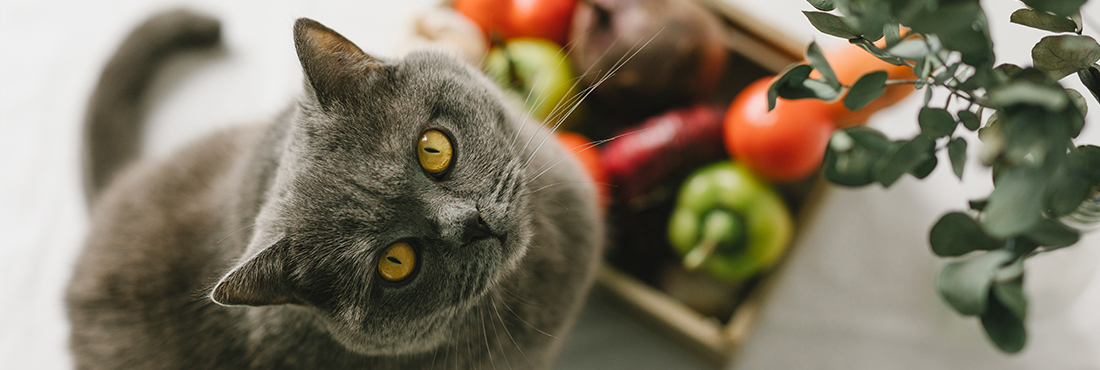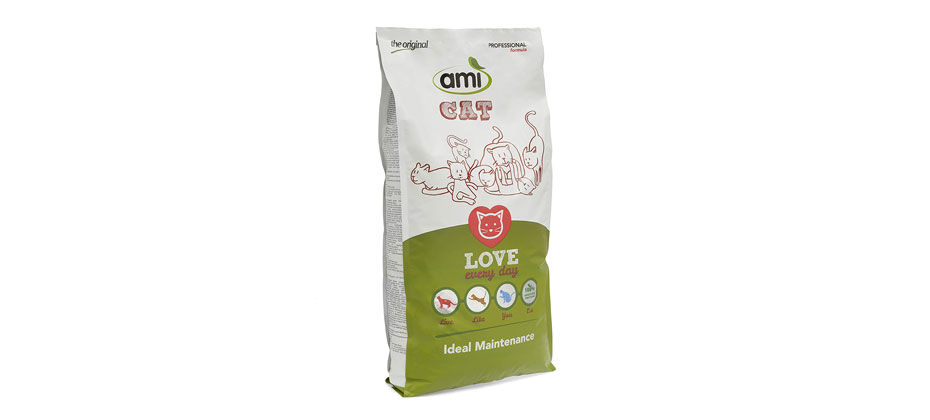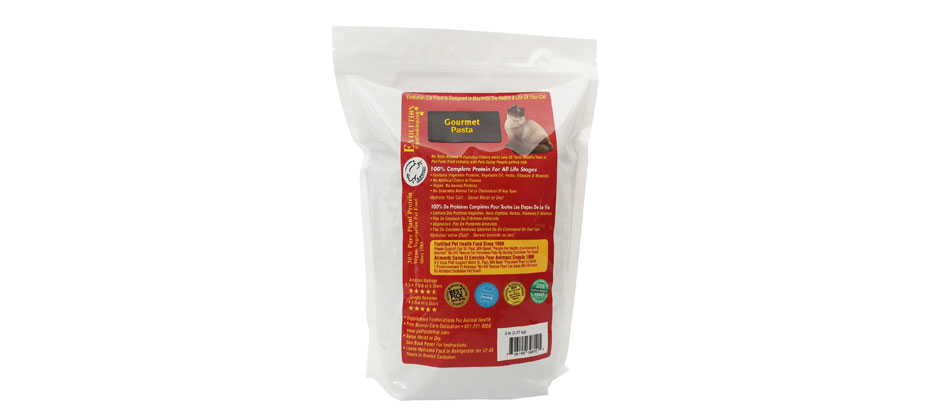When it comes to commercial pet food, you will rarely – if ever – come across a vegetarian or vegan food product without specifically searching for one. Vegan cat food brands do exist, much to the joy of vegan cat owners, but they are far and few between. This is because the domesticated cat needs more in their pet food than just plants. A cat’s diet should be varied, and we’d like to help you understand why. Keep reading to learn about the risks of vegetarian and vegan diets for cats, and why cats need to eat animal products.
Can Cats Be Vegan?
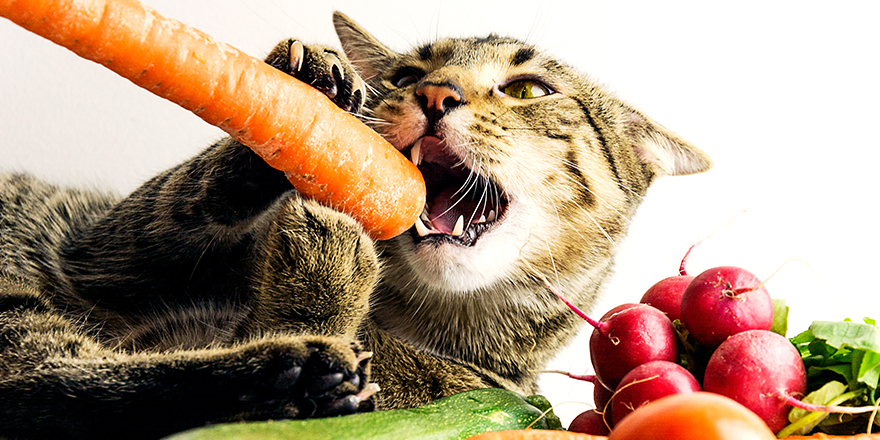
Despite the arguments of some vegans who are cat owners, cats cannot and should not be forced onto a vegan diet. A plant-based diet will not provide your cat with the nutrition that they need to be active every day and stay healthy in the long term.
One of the major reasons that a vegan diet is unsuitable for cats is the lack of taurine. Taurine deficiency is very harmful, taurine is an essential amino acid for your cat and helps care for their eyesight while also looking after their immune system. Taurine isn’t the only reason your cat needs to eat meat, but it’s certainly a crucial thing to make note of.
Vegan cats on a plant-based diet
Cats can eat some plant-based foods, but they shouldn’t make up the bulk of their diet. If you are attempting to make your cat “vegan”, we seriously recommend still allowing your cat to have a couple of servings of meat in their diet.
Pet owners that just want to include more plant-based products in their cat’s diet should know which fruits and vegetables are suitable for cats to eat. There are vegan and plant-based cat foods, too, which we’ll look at in the next section.
Any fruit or vegetable that you feed your cat should be without seeds, leaves, stems, or other parts of the plant. You should peel the fruit or vegetable to help your cat digest them better, and limit the amount of fruit because of its naturally occurring sugar content.
Fruits that cats can eat
- Apples
- Bananas
- Blueberries
- Mango
- Peaches
- Strawberries
- Watermelon (seedless only)
Vegetables that cats can eat
- Asparagus
- Broccoli
- Cucumber
- Green Beans
- Peas
- Potato
- Pumpkin
Other vegan human food suitable for cats
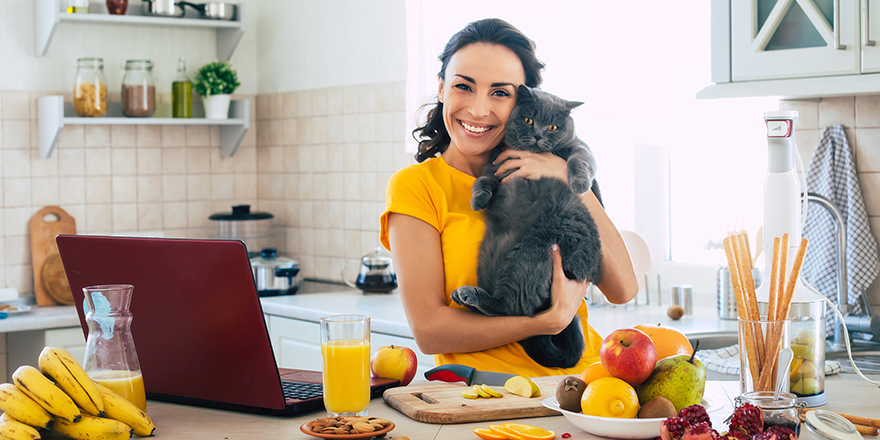
- Bread (in small amounts)
- Oats (oatmeal, oat milk in moderation)
- Rice
Vegan cat foods
Wyson Vegan dry cat food – added taurine, includes probiotics and prebiotics.
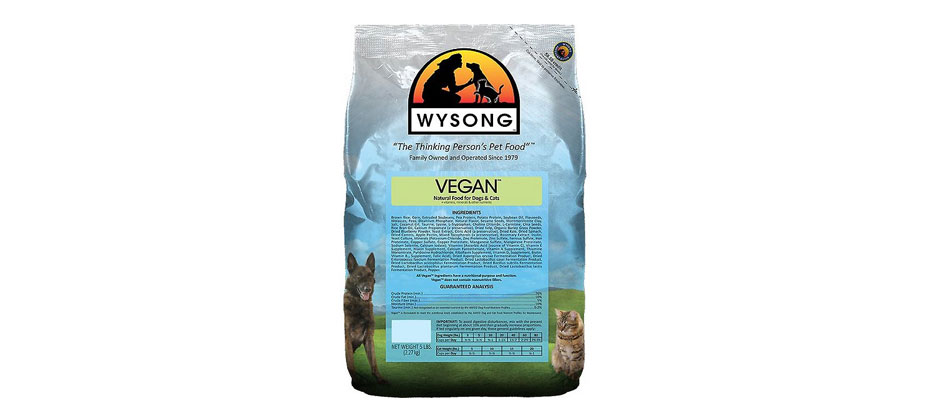
Ami Cat Love dry cat food – added taurine, vitamins, and nutrients.
Benevo vegan dry cat food – meat-free, added taurine, only uses natural ingredients.
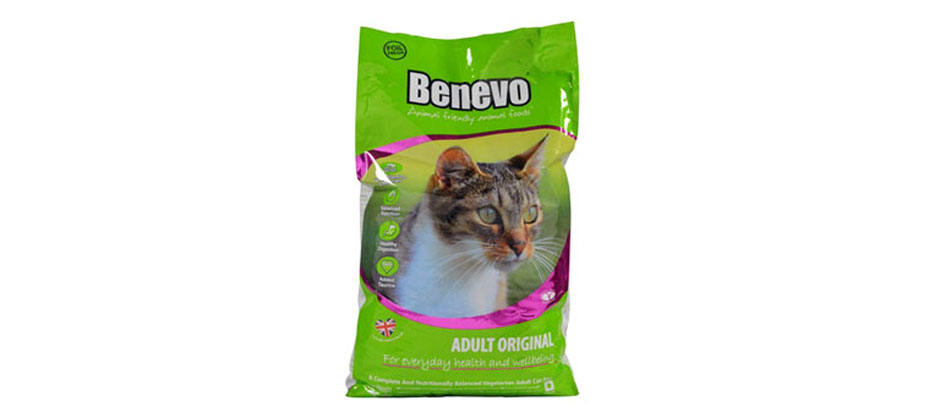
Evolution Diet Gourmet Fondue vegan dry cat food – free of animal products and by-products, provides a balanced diet.
These four products are also considered some of the best vegetarian cat foods. You aren’t likely to find a vegetarian cat food that isn’t also vegan.
Cat Vegan Diet Issues
The problem with putting your cat on a vegan diet is that cats eat meat for their health. Cats are obligate carnivores, which means that they depend on the meat that they eat for survival.
A cat’s body isn’t made to digest plant material, though they can push small amounts of fruits and vegetables through their digestive system, which is why so many cat food brands include plant products.
By themselves, plants do not provide enough nutrients for companion animals like cats. The essential nutrients that your cat gets from their meat-based diet are an aid to their health. Without meat, a cat’s health will steadily decline. Cats are not humans. They cannot digest many of the food products that we can.
Study on Vegan Cat Food
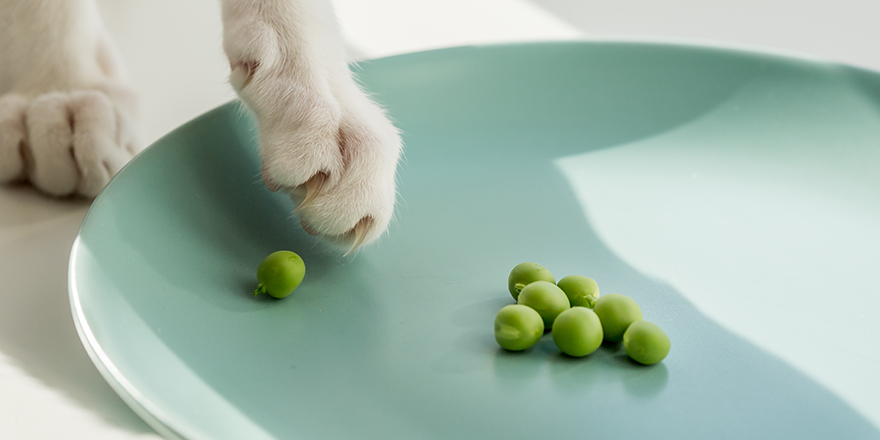
A study published in JAVMA (the Journal of American Veterinary Medical Association) looked at the nutritional adequacy of vegan diets for cats. They used commercially available cat food products and examined them to find out whether they were suitable for cats to eat.
The study showed that two of the cat foods were deficient in several nutrients that are necessary to include ina cat’s diet. Both vegan diets were compared to the Association of American Feed Control Officials nutrient requirements, and they didn’t meet them.
Why Cats Need Animal Protein
In addition to the study outlined in the last section, there have been numerous other pieces of research detailing why cats need to eat animal products. At the very least, as we’ve already mentioned, they need taurine in their diet.
The Animal Poison Control Center states that, while it is possible, though challenging, to keep dogs healthy on a plant-based diet, a vegan diet is not appropriate for cats. As obligate carnivores, cats have not adapted to being on vegan or vegetarian diets. They won’t thrive as well as cats that are enjoying the benefits of the meat industry, and may suffer from health problems.
Cats need taurine and high levels of protein. Vegan diets are often rich in carbohydrates, which aren’t appropriate for cats.
The Animal Welfare act in the UK
The Animal Welfare Act in the UK states that pet owners are under the obligation to feed their animals with food on an appropriate diet. Daniella Dos Santos, president of the British Veterinary Association, says that “If your personal belief system means you don’t want to eat any animal protein… that diet is not designed to meet the welfare standards of your pet.”
In the UK, animal owners can face jail time and fines of up to £20,000 for the offence of not feeding their pet appropriately.
Can Cats be Vegetarian?
Though there is a stark difference between vegan and vegetarian diets for humans, the difference between the two for cats basically doesn’t exist.
Cats are known to be lactose intolerance and pet owners are often warned against feeding them any type of dairy. One of the main food groups that separates vegetarians and vegans is dairy food. This includes animal milk and cheese, but the food group also (technically) includes eggs.
None of these three food items are very good for cats. Cats certainly shouldn’t be fed milk or cheese because of their lactose intollerance.
Vegetarian Diet for Cats
Though your cat cannot have milk or cheese, they may be given a small amount of boiled egg. The egg must be boiled and unseasoned. It cannot be cooked in any fats, oils, or butter.
Alongside egg as the only source of animal protein in your cat’s vegetarian diet, the rest of their food intake would be considered vegan or plant-based.
It should be said that cats cannot have soy/soya, and they should avoid nuts, too. That rules out a huge amount of the vegetarian food available to humans. They can have oat milk and oats, but in moderation, as previously mentioned in the vegan diet section.
Can Cats Eat Dog Food?
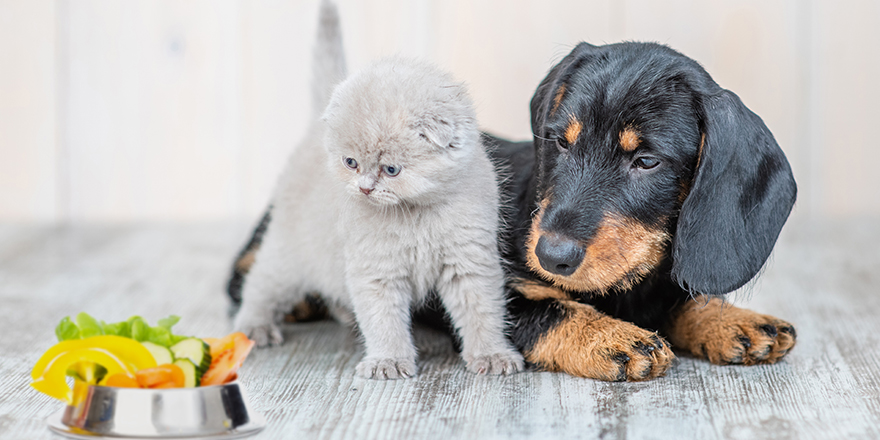
An interesting question and one that is often asked alongside this subject because vegetarian dog food is more widely available. Dogs make better vegetarians than cats. Their digestive system can handle more plant matter, and they don’t need taurine as an essential amino acid.
However, no, cats can’t eat dog food. The essential nutrients that both species need is different. A cat will eat dog food if you put it in front of them, but they won’t gain the properly nutritional benefits from it, and that may affect their health.
Frequently Asked Questions
Though there is no risk to feeding your cat a plant-based diet, the issue is the lack of proper nutrients. Plant-based or vegan diets do not contain the high levels of protein or the addition of taurine that cats need to thrive. Your cat won't be unhealthy on a plant-based diet, but they may be more likely to contract illnesses because there is less promoting the wellness of their immune system.
There are no big cats in the wild or in captivity that eat vegan or vegetarian diets. Cats, of any type, are obligate carnivores and need to have meat in their diet. A wild cat hunts for their own food, taking down other animals they see as appropriate prey. Once killed, the wild cat eats them. Wild cats may also graze on foraged fruits and vegetables, but they prefer to hunt.
A meat-based diet that includes absolutely no fruit or vegetable matter won't be particularly harmful to kittens and adult cats, but they may not be getting the additional vitamins and minerals they need. Your cat's nutritional needs are met with a varied diet that includes essential amino acids, nutrients, minerals, and vitamins. Meat, by itself, cannot meet the needs of a healthy pet's diet.

